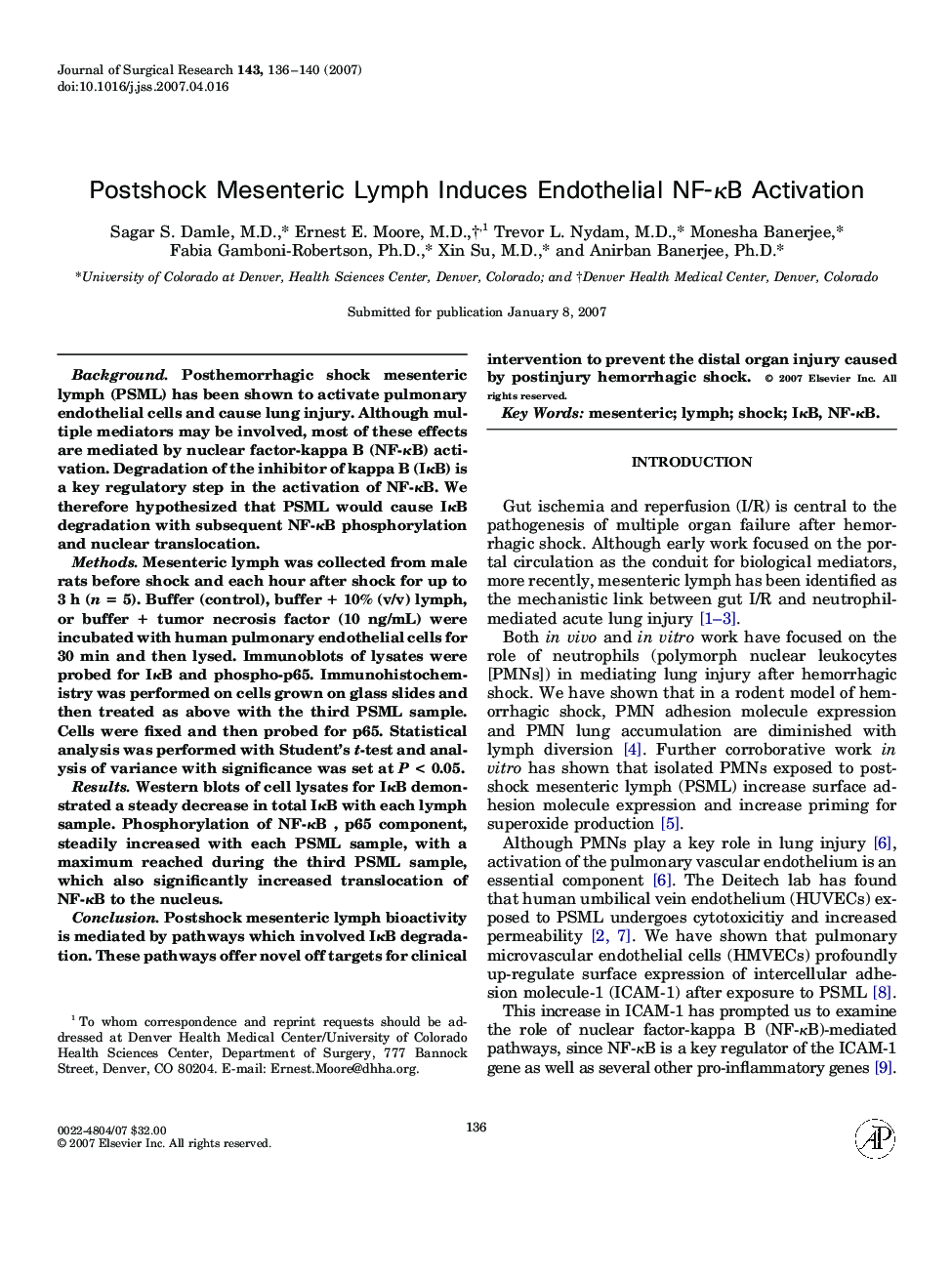| Article ID | Journal | Published Year | Pages | File Type |
|---|---|---|---|---|
| 4304146 | Journal of Surgical Research | 2007 | 5 Pages |
BackgroundPosthemorrhagic shock mesenteric lymph (PSML) has been shown to activate pulmonary endothelial cells and cause lung injury. Although multiple mediators may be involved, most of these effects are mediated by nuclear factor-kappa B (NF-κB) activation. Degradation of the inhibitor of kappa B (IκB) is a key regulatory step in the activation of NF-κB. We therefore hypothesized that PSML would cause IκB degradation with subsequent NF-κB phosphorylation and nuclear translocation.MethodsMesenteric lymph was collected from male rats before shock and each hour after shock for up to 3 h (n = 5). Buffer (control), buffer + 10% (v/v) lymph, or buffer + tumor necrosis factor (10 ng/mL) were incubated with human pulmonary endothelial cells for 30 min and then lysed. Immunoblots of lysates were probed for IκB and phospho-p65. Immunohistochemistry was performed on cells grown on glass slides and then treated as above with the third PSML sample. Cells were fixed and then probed for p65. Statistical analysis was performed with Student’s t-test and analysis of variance with significance was set at P < 0.05.ResultsWestern blots of cell lysates for IκB demonstrated a steady decrease in total IκB with each lymph sample. Phosphorylation of NF-κB , p65 component, steadily increased with each PSML sample, with a maximum reached during the third PSML sample, which also significantly increased translocation of NF-κB to the nucleus.ConclusionPostshock mesenteric lymph bioactivity is mediated by pathways which involved IκB degradation. These pathways offer novel off targets for clinical intervention to prevent the distal organ injury caused by postinjury hemorrhagic shock.
